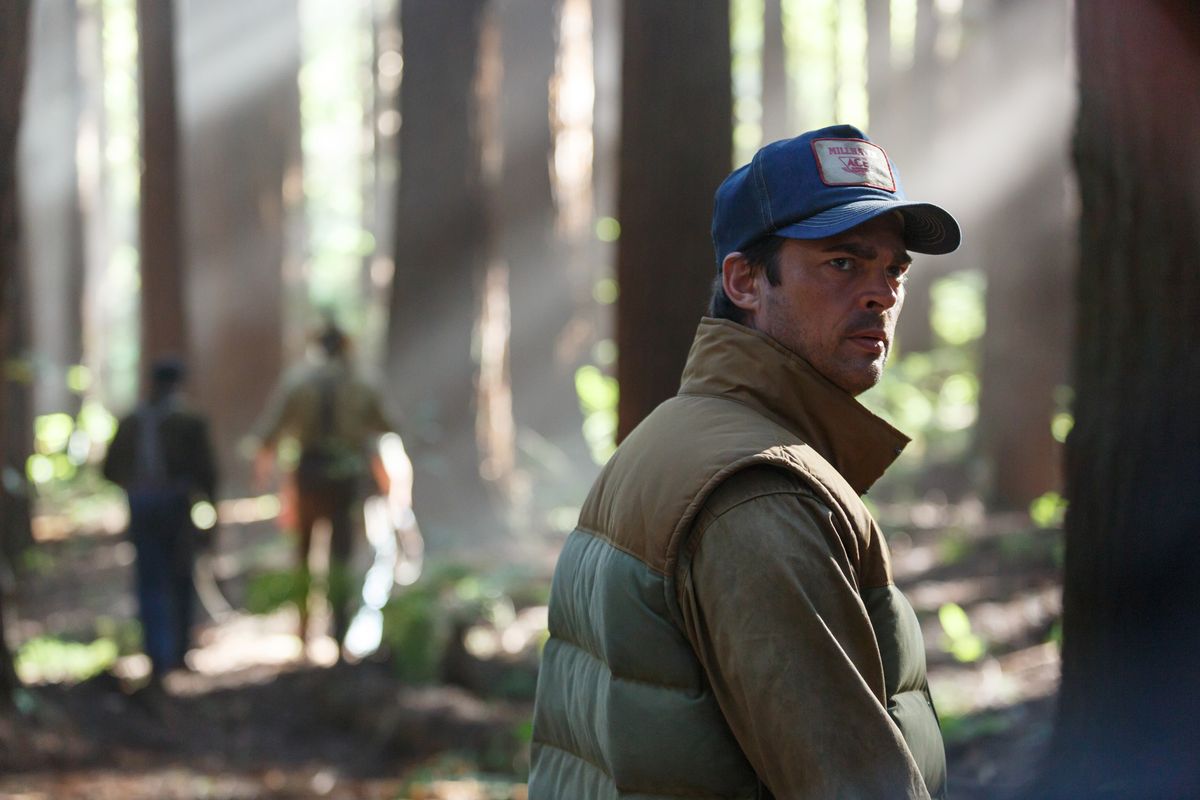Movie review: ‘Pete’s Dragon’ remake is one of the most heartening surprises of the year

Wait: How did this happen? How did a remake of the 1977 Disney animation/live-action hybrid “Pete’s Dragon,” a pushy mediocrity from tip to tail, become the most soulful film of the summer, and one of the best of the year?
In terms of story, director David Lowery’s version shares only two things with the ’77 model. Pete’s an orphan. And the title is still “Pete’s Dragon,” which indicates there’s a dragon (beautifully, digitally realized this time, as opposed to animated). So, all right, make that three things.
Disney is notoriously resistant about releasing any sort of production budget figures for any of its products. But I’m guessing that Lowery worked with a large but not insane amount of money. Enough to make it look like it looks, which is beautiful; but not so much that Disney expected a dumber, blander sort of entertainment.
If you’re a major studio, you don’t hire the director who made the Texas crime story “Ain’t Them Bodies Saints” and expect pablum. Seeing that film three years ago, it was obvious the director was a large talent in the making. Now he has made a larger, very different movie without losing his instincts, his directorial stealth or his ability to finesse his actors’ performances, in this case in the vicinity of an achingly expressive and unexpectedly furry dragon with a little bit of bulldog in him.
The movie means business, right from the start. An eerily quiet prologue shows young Pete in a station wagon with his parents. Within seconds, a deer crosses the road, and in hushed slow motion, the car flips and only Pete survives the accident. Then, seconds after that, in the woods, the orphan boy hears a rustle: This is the fabled Millhaven dragon of local folklore, and he comforts his newfound friend.
Narrator Robert Redford, relaying some dragon lore to a group of children, clues us in to this maybe-world of dragons lurking in the Pacific Northwest forest (the movie was shot in New Zealand). Pete names the dragon Elliot after a treasured memento of his old life, “Elliot Gets Lost,” and six years later, the boy is 10 and living like Mowgli in “The Jungle Book,” in a treehouse borrowed from “The Swiss Family Robinson.”
This largely wordless first third is magic. The rest of “Pete’s Dragon” concerns how Pete is discovered, and what happens when Pete and Elliot are confronted by the human world populated by the residents of the logging community. Bryce Dallas Howard is Grace, the forest ranger who finds Pete, who is played by the wonderfully named Oakes Fegley. Grace has grown up hearing one too many dragon stories from her father, the genial eccentric portrayed by Redford in one of his finest late-career turns. Wes Bentley is the ranger’s fiance, whose daughter (Oona Laurence) becomes Pete’s entry into the town. Karl Urban is the Bentley character’s brother, a scowler and a quasi-adversary, who early on encounters the often-invisible and then suddenly, scarily visible dragon and becomes his predator.
I know, it sounds dorky. Lowery and his co-writer, Toby Halbrooks, don’t treat it that way. There’s an unusual pace and a quiet focus to the best of “Pete’s Dragon,” and because the dragon growls and purrs and grunts but, thankfully, doesn’t speak, the relationship between boy and winged serpent is conveyed largely through brief, one-sided conversations. We lean into this movie. At a recent preview screening, full of kids, the atmosphere was exceptionally quiet and engaged, until the applause greeting various moments in the action climax, with its attendant reunions and farewells.
A few caveats. After a seriously transporting first half, the second half is more conventional in its narrative beats. By design the cruelest moment arrives right on top of an exceptionally tender one, and it’s exploitative in a way the rest of the movie isn’t. Still, compared with the old “Pete’s Dragon” and its miserable slapstick and peppy songs sung by abusive parents, this is another, higher realm of emotional engagement. Ideas and motifs borrowed from “Bambi,” “E.T.,” “The Jungle Book,” “The Iron Giant” and many more float through the film. Lowery’s designers locate the action two or three decades ago, without overdoing it. Just a few choice visual details. LP records on a hi-fi, landline phones that go BRRRRINNNNGGGG! and a close-up or two of an old box of Crayolas. It all works, as does the restrained and mellow sentiment of Daniel Hart’s folk-tinged score.
This is one of the season’s most heartening surprises.